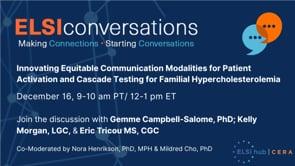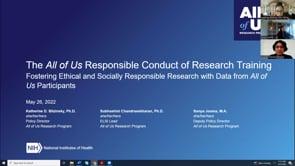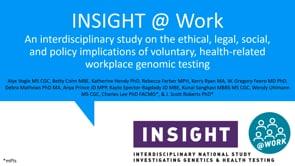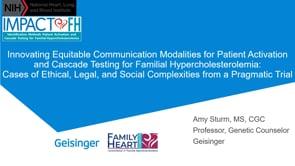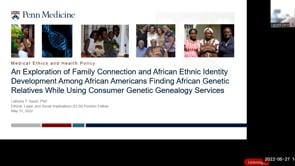Will it be easier to cure sickle cell disease through gene therapy than prevent the disease through pre-implantation genetic testing for the selection of unaffected embryos?
ELSIcon2022 • Pre-recorded Flash
- Jeanne O'Brien, MD, MSc - Shady Grove Fertility, Rockville MD
- Sigal Klipstein, MD - InVia Fertility Specialists
- Joshua Combs - Eunice Kennedy Shriver National Institute of Child Health and Human Development, Uniformed Services University of the Health Sciences Clinical Fellow, Reproductive Endocrinology and Infertility
- Erin Rothwell - University of Utah
Will it be easier to cure sickle cell disease through gene therapy than prevent the disease through pre-implantation genetic testing for the selection of unaffected embryos?
Sickle cell disease (SCD) is an inherited hemoglobinopathy that results in a pattern of early morbidity and mortality occurring in approximately 1 out of every 365 Black or African American births in the United States, and fewer in other ethnicities.1
Those affected have a greatly diminished quality of life and can pose significant resource burdens on themselves and the healthcare system. Important progress has been made through screening of newborns and disease modifying treatments for those found to be affected. However, despite these advances, those with SCD suffer from recurrent pain crises and a cascade of resulting comorbidities throughout their often-shortened lifetimes.
For more than twenty years it has been possible to prevent disease transmission of many inherited disorders, including SCD, through preimplantation genetic testing of embryos during in vitro fertilization (IVF). With IVF, 75% of embryos are expected to be unaffected. Of these, 2/3 will be carriers of SCD, and the resulting children would be expected to be unaffected by SCD. The remaining 1/3 of the unaffected embryos will not even carry SCD, thus eliminating this gene mutation from the gene pool for subsequent generations of offspring. Couples at risk for being carriers must be aware or made aware of their carrier status prior to conception to enable their utilization of preimplantation reproductive diagnostics against genetically inherited disease processes. While highly successful, this approach requires knowledge, significant time and financial resources.
Tags
Videos in Series
-
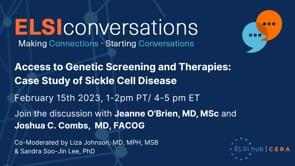
ELSIconversations 3: ELSIcon2022 - ELSIconversations ELSICon2022: Access to Genetic Screening and Therapies: Case Study of Sickle Cell Disease
-
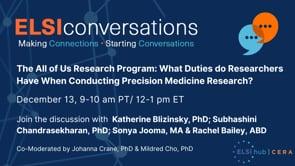
ELSIconversations 3: ELSIcon2022 - ELSIconversations ELSICon2022: The All of Us Research Program: What Duties do Researchers Have When Conducting Precision Medicine Research?
-
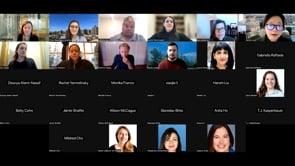
ELSIconversations 3: ELSIcon2022 - ELSIconversations ELSICon2022: Stakeholder Perspectives on Data Sharing and Privacy
-
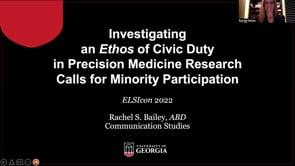
ELSIconversations 3: ELSIcon2022 - Investigating an Ethos of Duty in Precision Medicine Research Calls for Minority Participation
-
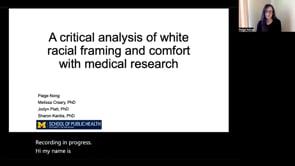
ELSIconversations 3: ELSIcon2022 - White racial framing and comfort with medical research: a critical analysis
-
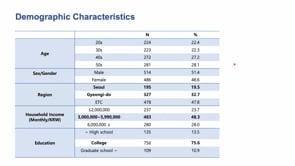
ELSIconversations 3: ELSIcon2022 - A Survey on Public Perception toward the Korean National Bio Big Data Project
-
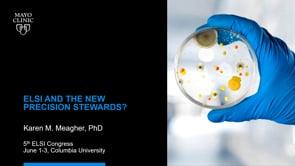
ELSIconversations 3: ELSIcon2022 - ELSI and the New Precision Stewards?

